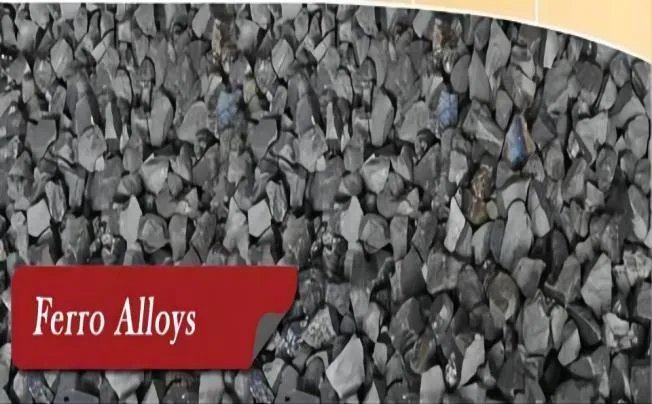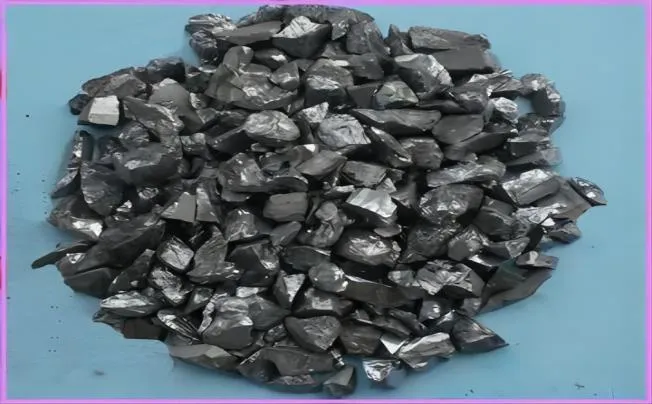What is Calcium Silicon?
Calcium silicon, sometimes referred to as calcium silicon oxide or calcium silicate (Ca2SiO4), is a substance with a wide range of uses in several industries.
Calcium Silicone: An alloy of silicon and calcium, calcium silicon is often referred to as calcium silicide (CaSi). In the production of steel, it is mostly used as a deoxidizer and desulfurizer. Calcium silicon enhances the quality and performance of steel by aiding in the removal of impurities.
Properties of Silicon Calcium
- Deoxidizing and Desulfurizing Agent: Silicon calcium is frequently used as a deoxidizer and desulfurizer in the steel sector. It improves the quality of steel by reacting with sulphur and oxygen in molten steel to generate stable compounds that are easily removed as slag.
- Alloying Agent: As an alloying agent, silicon calcium is mixed with molten steel. Steel gains strength, hardness, and increased resistance to corrosion as a result of its enhanced characteristics.
- Sealing Properties: Calcium silicate, a silicon calcium byproduct, is a sealer that finds utility in a number of industries. It chemically combines with calcium hydroxide or calcium carbonate when applied to eggshells or hardened concrete to generate calcium silicate hydrate, which essentially seals micropores with an impermeable substance.
- Cement Ingredient: Cement contains silicon calcium in the form of calcium silicate, often known as belite or C2S. It adds to the longevity and strength of concrete construction.
- Agricultural Use: As a plant-available supply of silicon, calcium silicate, which is made from silicon calcium, is used in agriculture. It is applied to specific soil types where crops like rice and sugarcane are grown.
- Acid Mine Drainage Remediation: Melting iron from iron ore, silicon dioxide, and calcium carbonate in a blast furnace yields calcium silicate, sometimes referred to as slag. Acid mine drainage (AMD) in both active and dormant mines is remedied using refined calcium silicate aggregate made from slag.
What is Difference Between Calcium Silicon and Silicon Calcium Alloy?
Calcium silicon and silicon calcium alloy are two terms used to refer to the same material, which is a compound of calcium and silicon. The terms are often used interchangeably, and there is no significant difference between them in terms of composition or properties. Calcium silicon, also known as calcium silicide (CaSi2), is primarily used as a deoxidizer, desulfurizer, and alloying agent in the steel industry It is added to molten steel to remove impurities and improve the overall quality of the steel. Calcium silicon reacts with oxygen and sulphur in the steel, forming stable compounds that can be easily removed as slag.
The substance is also used in other contexts, including as a cement component, a sealant for fresh eggshells and roadways, an agricultural silicon supply, and the treatment of acid mine drainage.
In conclusion, the terms “calcium silicon” and “silicon calcium alloy” refer to distinct forms of the same substance, which finds widespread use in the steel sector among other industries.
What is the Use of Calcium Silicon?
In the steel industry, calcium silicon, sometimes referred to as calcium silicide (CaSi2), is mainly utilised as an alloying agent, deoxidizer, and desulfurizer. It is added to molten steel in order to clean it up and raise its general quality. In the steel, calcium silicon combines with sulphur and oxygen to generate stable chemicals that are easily removed as slag.
Calcium silicon is used in a number of different industries than the steel industry, including:
Sealant for roadways and Egg Shells: Calcium silicate is a sealant that can be used to both fresh egg shells and roadways. When used as a sealant, it forms calcium silicate hydrate through a chemical reaction with calcium hydroxide or calcium carbonate, which essentially seals micropores with a substance that is relatively impervious.
Part of Cement: Cement contains calcium silicate, sometimes referred to as elite or C2S in cement chemist notation.
Agriculture: A plant-available source of silicon, calcium silicate is employed in agriculture. It is heavily sprayed to some types of soil where crops like rice and sugarcane are grown.
Acid Mine Drainage Remediation: Melting iron from iron ore, silicon dioxide, and calcium carbonate in a blast furnace yields calcium silicate, or slag. Acid mine drainage (AMD) in both active and dormant mines is remedied using refined calcium silicate aggregate made from slag.





